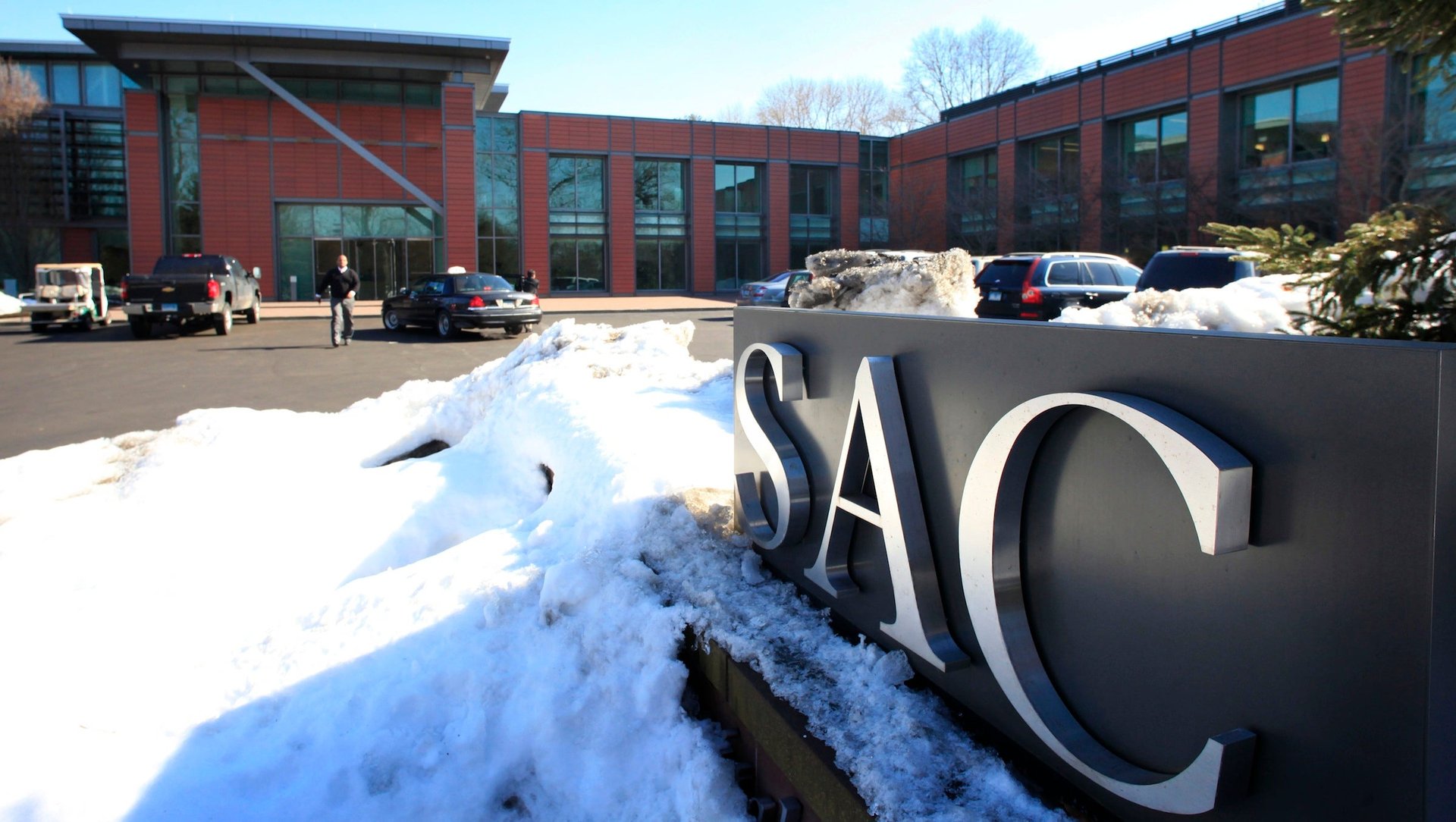New York grand jury accuses SAC Capital of systematically encouraging insider trading
A federal grand jury in New York has issued an indictment (pdf) against SAC Capital, meaning that the firm–though not CEO Steve Cohen himself–will face criminal charges over practices that allegedly encouraged insider trading.


A federal grand jury in New York has issued an indictment (pdf) against SAC Capital, meaning that the firm–though not CEO Steve Cohen himself–will face criminal charges over practices that allegedly encouraged insider trading.
According to the indictment, SAC hired portfolio managers and research analysts “with proven access” to contacts at public companies that would be able to provide them with inside information. In addition, the grand jury alleges, the firm pushed employees to know as much as they could about those companies and accepted that information without looking into how employees might have come across it. Those accusations are spelled out in five counts against SAC Capital that cite specific incidents.
The hedge fund has already shelled out $616 million to settle civil charges, in which it didn’t admit wrongdoing. Some of its former personnel have pled guilty. As rumblings of SAC Capital’s regulatory troubles have intensified, outside investors have yanked their cash from the firm’s management, by some calculations leaving the hedge fund manager with less than $1 billion in outside funds. If today’s indictments are borne out in court, it could spell the end of the hedge fund’s ability to manage client money.
The fall of SAC Capital would be a signal to Wall Street that regulators can and will pursue market manipulators—but only those market manipulators that it can take out without damaging the financial system. Although this case has the potential to make a statement, it is no sign that the US justice system is holding the country’s biggest and most important financial institutions—so-called “too big to fail” firms—accountable.